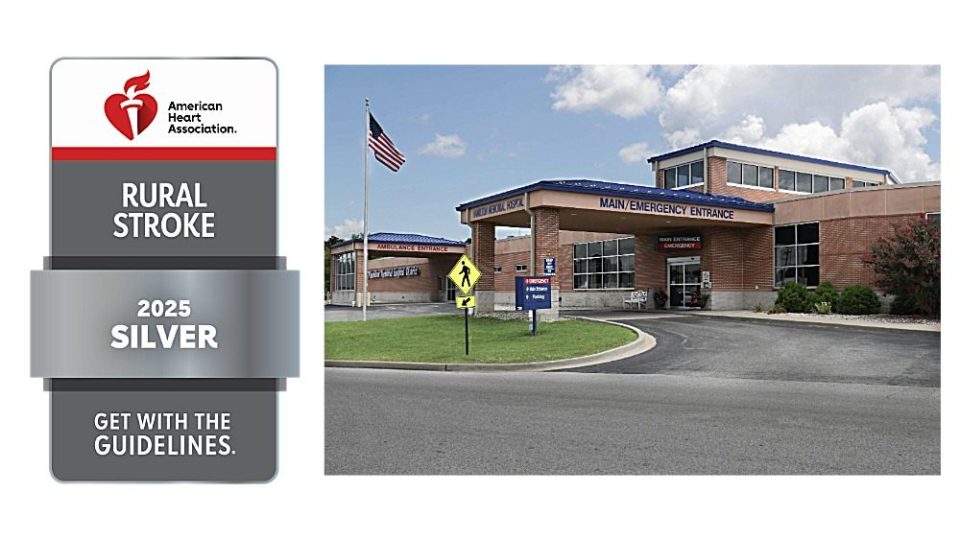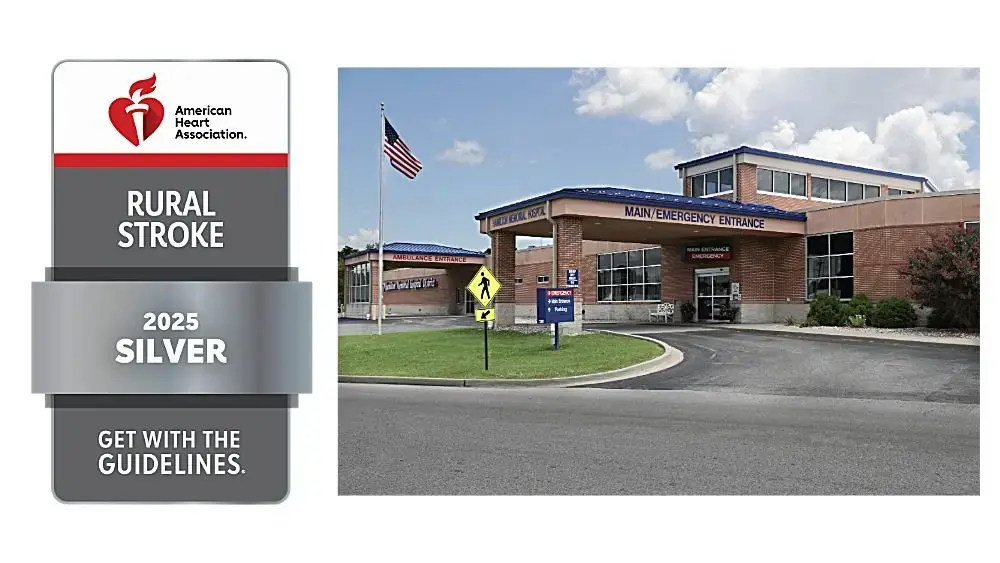MCLEANSBORO – People who live in rural communities live an average of three years fewer than urban counterparts and have a 40% higher likelihood of developing heart disease and face a 30% increased risk for stroke mortality – a gap that has grown over the past two decades. Hamilton Memorial Hospital District is committed to changing that.
For efforts to optimize stroke care and eliminate rural health care outcome disparities, Hamilton Memorial Hospital District has received the American Heart Association’s Get with the Guidelines® Stroke Rural Recognition Silver Award.

The American Heart Association, the world’s leading nonprofit organization focused on heart and brain health for all, recognized the importance of health care services provided to people living in rural areas by rural hospitals that play a vital role in initiation of timely evidence-based care. For that reason, all rural hospitals participating in Get With The Guidelines® – Stroke are eligible to receive award recognition based on a unique methodology focused on early acute stroke performance metrics.
“We are proud that our team at Hamilton Memorial Hospital is being recognized for the important work we do every day to improve the lives of people in Hamilton County and the surrounding areas who are affected by stroke, giving them the best possible chance of recovery and survival,” said Interim CEO Justin Epperson. “As a hospital in a rural community, we deal with characteristics such as extended interfacility transportation times and limited staffing resources. We’ve made it a goal to make sure those hurdles do not affect the standard of care our stoke patients receive. Rural communities deserve high quality stroke care. I’m proud of our team and their commitment to stroke care excellence and this achievement.”
The award recognizes hospitals for their efforts towards acute stroke care excellence demonstrated by composite score compliance to guideline-directed care for intravenous thrombolytic therapy, timely hospital inter-facility transfer, dysphagia screening, symptom timeline and deficit assessment documentation, emergency medical services communication, brain imaging, and stroke expert consultation.
“Patients and health care professionals in Hamilton County face unique health care challenges and opportunities,” said Karen E Joynt Maddox, M.D., MPH, co-author on the American Heart Association’s presidential advisory on rural health. “Hamilton Memorial Hospital District has furthered this important work to improve care for all Americans, regardless of where they live.”





